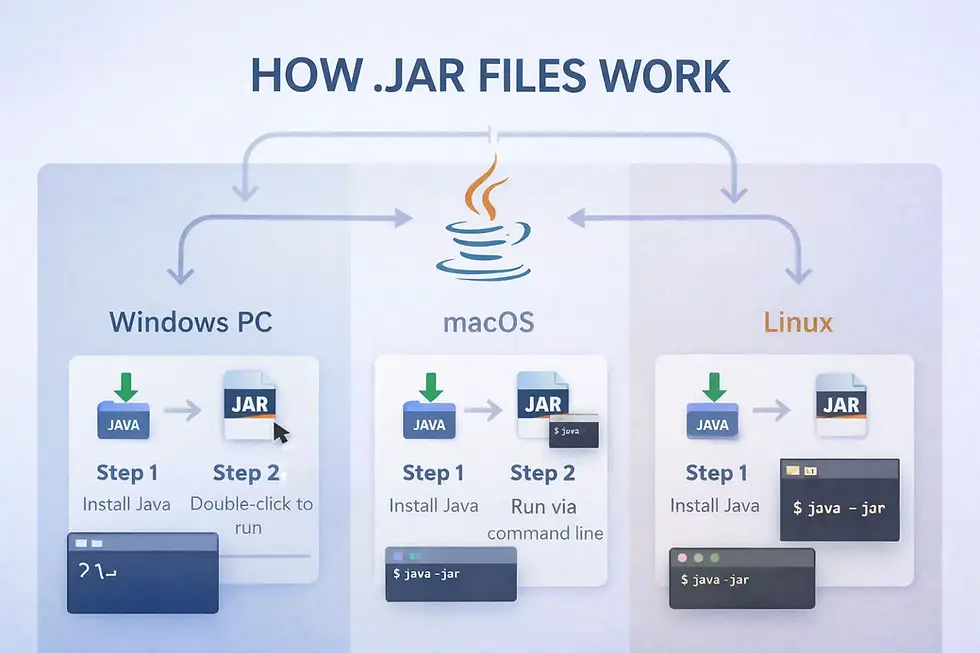What Is a Plugin? Meaning, Types, Uses, and Real-World Examples
- Kalyan Bhattacharjee

- Sep 14, 2024
- 4 min read
Updated: 6 days ago

Getting Started with Plugins
Plugins are essential components in the digital world that allow you to extend the functionality of software, applications, or web browsers. They act as add-ons or extensions that can be installed to enhance or modify the core features of a platform. Plugins are used across various systems and applications to provide users with more customization options and additional functionalities.
In this blog, we’ll explore what plugins are, the different types of plugins available, and their uses.
What is a Plugin?
A plugin, also known as an add-on or extension, is a piece of software that adds specific features to an existing program without altering its core code. Think of plugins as modular extensions that can be added to a system to increase its capabilities. Instead of rewriting the software from scratch, you can simply install a plugin to achieve the desired functionality.
Plugins are widely used in web browsers, content management systems (CMS), audio and video editing software, and more. For example, if you need to add extra features to your WordPress website, you would install a WordPress plugin. If you want to block ads in your browser, you can install an ad-blocking plugin.
Various Types of Plugins
There are various types of plugins designed to enhance different types of software and systems. Here are some of the most common types of plugins:
Ad Blockers: Block unwanted ads and pop-ups on websites.
Password Managers: Save and autofill passwords for various websites.
Grammarly: Helps with grammar and spell-checking while typing.
VPN Extensions: Provide enhanced security and privacy while browsing.
Browser plugins are easily installed from the browser’s extension store, and they often provide a seamless way to enhance your web browsing without affecting the browser’s core functionality.
Software Plugins
Software plugins are add-ons that extend the capabilities of a software program. These plugins can be installed to improve the functionality of software in various industries, including design, audio editing, video editing, and gaming. Examples of software plugins include:
Adobe Photoshop Plugins: Extend the capabilities of Photoshop with filters, effects, and new tools.
VST (Virtual Studio Technology) Plugins: Widely used in digital audio workstations (DAWs) like Ableton Live or FL Studio to add new instruments, effects, and sounds.
Gaming Mods: Modify video games by adding new features, levels, or graphical enhancements.
Software plugins allow users to tailor the application to their specific needs without waiting for official software updates or new versions.
Content Management System (CMS) Plugins
CMS plugins are add-ons designed for content management systems like WordPress, Joomla, and Drupal. These plugins allow users to extend the functionality of their websites with ease. Whether you need to add an SEO tool, a contact form, or an e-commerce solution, CMS plugins offer a wide variety of options.
Examples include:
Yoast SEO (WordPress): Helps improve your website’s search engine optimization.
WooCommerce (WordPress): Adds e-commerce functionality to a WordPress site.
Akismet (WordPress): Protects your site from spam comments.
CMS plugins are popular because they allow website owners to customize their sites without needing extensive coding knowledge.
Audio and Video Editing Plugins
Audio and video editing: Software often rely on plugins to provide additional tools and effects that are not available in the base software. These plugins are crucial for professionals working in the multimedia industry. Examples include:
Audio Plugins: Plugins like EQs, compressors, and reverb units for audio editing software such as Pro Tools or Logic Pro.
Video Plugins: Plugins that offer visual effects, transitions, and color grading tools for video editing software like Adobe Premiere Pro or Final Cut Pro.
These plugins allow creators to achieve more complex results without switching to different software.
E-commerce Plugins
E-commerce plugins are designed to add online shopping capabilities to websites. These plugins integrate payment gateways, inventory management, shipping options, and more into existing platforms. Popular e-commerce plugins include:
Shopify Plugins: Extend Shopify's functionality with apps that manage inventory, email marketing, and more.
WooCommerce (WordPress): A powerful plugin that turns a WordPress site into a fully functional online store.
These plugins enable business owners to customize their online stores to meet the needs of their customers and manage their business more effectively.
Security Plugins
Security plugins are designed to protect websites, software, and systems from malicious attacks, unauthorized access, and data breaches. Examples include:
Wordfence (WordPress): Provides a firewall, malware scanner, and security monitoring tools for WordPress websites.
SSL Plugins: Add SSL encryption to websites for secure data transmission.
These plugins are critical for ensuring the safety and integrity of digital assets.
Benefits of Using Plugins
Plugins offer a range of benefits to users and developers, such as:
Customization: Plugins allow users to tailor software to meet their specific needs without altering the core program.
Flexibility: Users can add or remove plugins as needed, making software more flexible and adaptable.
Ease of Use: Most plugins are easy to install and use, requiring little to no technical knowledge.
Time-Saving: Plugins save time by eliminating the need for custom development to add new features to software.

Wrapping Up | Plugins & It's Types
Plugins are powerful tools that can enhance the functionality of software, web browsers, content management systems, and more. By allowing users to extend the capabilities of a system without altering its core structure, plugins provide flexibility, customization, and convenience.
Whether you're enhancing your browser, adding features to your software, or improving your website’s security, plugins offer endless possibilities for optimization and personalization. Understanding the different types of plugins available can help you make informed decisions about which add-ons are best suited for your needs.
Related Keywords: what is a plugin, what is a plugin in software, what is a plugin in music, what is a plugin software, what is a plugin in wordpress, what is a plugin on a website, what is a plugin hybrid, what is a plugin?, what is a plugin on wordpress, plugin define, what is a plugin minecraft, what is a plugin shockwave, what is a plugin fl studio, what is a plugin for a website, fintech shield




Comments